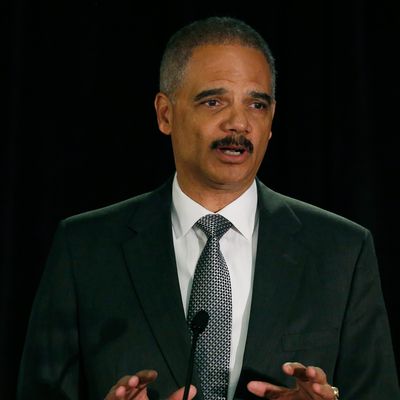
You might think that the only Americans to benefit from the brouhaha over the 2012 attack on a diplomatic compound in Benghazi would be the talking heads and political operatives who got to work themselves into histrionics for years. But there’s another, less direct beneficiary of the Benghazi flap and the subsequent investigations: Citigroup, the giant Wall Street investment bank, which avoided a massive lawsuit over mortgage-backed securities because U.S. authorities were worried a new development in the Benghazi drama would overshadow their efforts.
It sounds too strange to be true, but it really happened. From today’s Wall Street Journal:
News had leaked that afternoon, June 17, that the U.S. had captured Ahmed Abu Khatallah, a key suspect in the attacks on the American consulate in Benghazi in 2012. Justice Department officials didn’t want the announcement of the suit against Citigroup—and its accompanying litany of alleged misdeeds related to mortgage-backed securities—to be overshadowed by questions about the Benghazi suspect and U.S. policy on detainees. Citigroup, which didn’t want to raise its offer again and had been preparing to be sued, never again heard the threat of a suit.
According to the Times, after months of negotiations about the size and scope of a settlement, Tony West, the Justice Department negotiator working on the government’s behalf, was ready to sue Citigroup for a litany of mortgage-related misdeeds. Then, hours before the lawsuit was supposed to be announced, Khatallah was captured. Not wanting to be one-upped by the Benghazi news, West told the bank, “We’ve got a lot going on right now, so we’re putting the lawsuit temporarily on hold.” The lawsuit was eventually called off, and the settlement talks resumed.
So instead of facing an embarrassing public ordeal, it looks like Citigroup will get away with a $7 billion settlement for misleading customers about the quality of toxic mortgage-backed securities it sold them during the financial crisis — not chump change, certainly, but hardly the public shaming detractors had hoped for. Citigroup may not have lost in the end, even if a lawsuit had been filed, but it would have had to make a more public case for its innocence.
Oh well. Hopefully, the next time a bank is due to be sued for a major misdeed, the news cycle will cooperate.





























